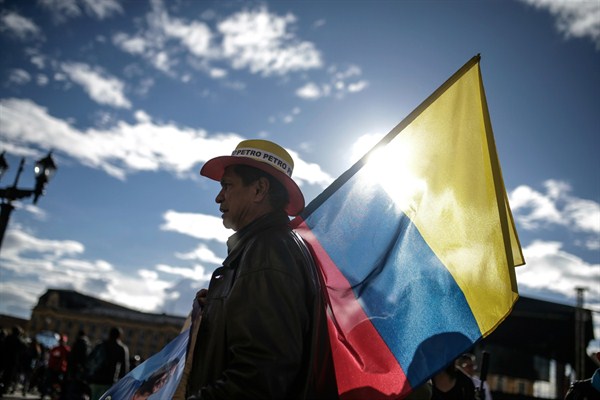In the first round of Colombia’s presidential election on May 27, Gustavo Petro, the ex-mayor of Bogota, won 25 percent of the votes cast, setting the stage for him to face off against Ivan Duque, a senator and former official of the Inter-American Development Bank who secured 39 percent.
Their respective results make Duque—who is running as the candidate of the Democratic Center, the right-wing party that is most critical of the 2016 peace agreement with FARC guerrillas—the clear favorite to win in the June 17 runoff.
But despite the fact that Petro can all but rule out taking office in August, the mood in his camp was celebratory: Petro barely beat center-left candidate Sergio Fajardo for the run-off ballot by a narrow margin of 1.35 percent, making him the first-ever left-wing candidate to reach the second round.

